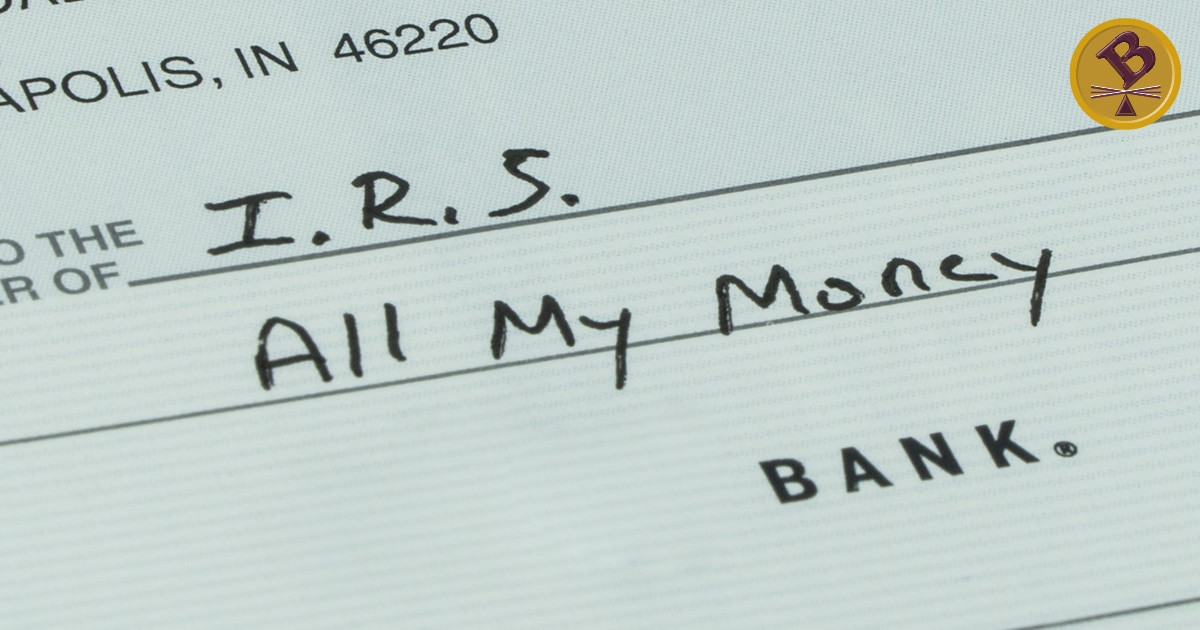Do you suspect you owe money to the IRS? Are you unsure of the amount you owe and do not know how to access this information? This article will walk you through all the details of what you need to know when owing the IRS taxes, fees, interest, and/or penalties.
We’ll take a close look at when you may owe the IRS money, what situations you may find yourself in, and how exactly you can determine if you do actually owe the IRS any money.
Plus, we’ll go over some of the options you have available to you when paying the IRS. Don’t worry; they won’t cause you to go bankrupt overnight or anything like that. There are payment options available, and the IRS will work with you to help you pay what you need to.
Of course, we recommend working with a qualified tax professional when paying your taxes, so you can make sure you pay everything that is due. We can help you file or determine how much you need to pay this year for any subsequent years’ taxes.
When You Might Owe Money to the IRS
When you file your annual taxes, you or your tax preparer may determine that you owe the IRS money if you have not paid enough taxes during the year. In cases like that, you would normally just pay the amount you owe in full when it is due or file for an extension.
If you have not filed or paid taxes in more than one year, you may find that you owe the IRS quite a lot of money. You may owe more than just the income tax you are required to pay annually; you may also need to pay fees, interest, and penalties from your overdue tax.
Do not allow this to shake you too much; the IRS wants you to pay what you are supposed to, but they will work with you to pay off the balance. They allow payment agreements with monthly payments and other payment options for taxpayers to pay the federal taxes and tax penalties due.
How to Determine If You Owe the IRS Money
One way to determine the amount you owe the IRS is to access your account on the IRS’s webpage, View Your Tax Account. You can view your balance details, make a payment online, and see payment plan options available.
If you have trouble accessing your account that way, you may want to request a transcript, which will have all of the pertinent details on it. Go to the Welcome to Get Transcript page to find out the various ways you can request a transcript with the above details on it.
If you are a business or individual taxpayer who filed a form other than IRS Form 1040, you will need to complete IRS Form 4506-T: Request for Transcript of Tax Return. Use this form to request the tax return information off of your last tax return. This is an especially smart thing to do if you have lost the records from the previous tax year
Another option is to contact the IRS directly. Speak to your local tax office (Contact Your Local IRS Office), or contact the IRS via their Let Us Help You page for individual taxpayers and businesses. They have many phone numbers available for you to call to find assistance with your particular topic; it just depends on what you need help with.
How to Pay the IRS Your Balance Due
If you have decided to go with the installment agreement offered by the IRS, you will need to file IRS Form 9465: Installment Agreement Request.
Go to Apply Online for Payment Plan, where you will find many options to choose from. This will help you get started in setting up your online payment agreement. You will need to have an account set up with the IRS to begin your application for an installment plan, but it is a very good option if you need to spread out your tax debt into even installment payments.
If you have your account information, you can pay with a debit or credit card on the IRS page, Pay Your Taxes by Debit or Credit Card.
Another payment option is known as the Offer in Compromise. The Offer in Compromise helps low-income families or individuals pay off their tax debt for less than the total amount that is due to the IRS. This is not a common option, and you must meet certain circumstances to qualify for this option.
To qualify for the Offer in Compromise, you must have a legitimate reason for not being able to pay your full tax liability, or paying your full tax debt would cause you to have considerable financial hardship.
When determining if you can pay less than the full amount of your tax liability, the IRS takes four things into consideration: your ability to pay, your current income level, expenses, and asset equity. It’s important to calculate these items when trying to determine if you should apply for the Offer in Compromise.
If you have not filed the taxes you are paying, you will want to do this as soon as possible. You can go ahead and make estimated payments on what you think you owe. If you pay too much, the IRS will issue you a refund. If you do not pay enough, you may be penalized with fees and interest.
If you have trouble filing taxes on time, you may want to file for a tax-filing extension, which can buy you time to get your paperwork in order. You are still required to pay your tax bill on the due date, so it’s best to estimate a payment than to not pay anything at all.
Frequently Asked Questions
How much do I owe the IRS?
Go to the IRS’s online interactive tool to determine how much you owe the IRS. If you do not have your account information or cannot access your information, you may want to request access to your tax transcript or call your local IRS office directly.
What happens if you owe the IRS money and don’t pay?
According to CNBC, if you file your annual tax return but do not pay your taxes, the IRS will charge you a failure-to-pay penalty, which is 0.5% of your unpaid federal taxes for each calendar month you do not pay, up to 25%. You will also owe interest on the unpaid portion.
How long do you have to pay the IRS if you owe?
According to the IRS, your specific tax situation will determine how long you have to pay your taxes and which payment options are available for you. You may be eligible for full payment, a short-term payment plan (paying in less than 120 days), or a long-term payment plan, where you would have more than 120 days to pay what you owe.
Can you get a stimulus check if you owe the IRS money?
According to CNET, if you have federal debt, such as taxes due, the government will not reduce your stimulus payment to cover those, in most cases. If you were not even required to file an annual tax return, you might still qualify for a stimulus check. The exception mentioned is for past-due child support.
Can I negotiate what I owe the IRS?
Generally, the IRS expects what is due to them, the total amount when due. If you are unable to pay the amount you owe in full, you may be eligible for installment payments, equal payments of the total sum that is due. Other payment options may be available in amounts less than the total due, but it would depend on your individual circumstances and your arrangement with the IRS.
To Sum Things Up…
You now know when you might owe the IRS money, how to determine your balance details with the IRS’s online tools, and in what ways you can pay the IRS the money you owe. Do you need assistance with your taxes or payment arrangements?
Do you need help getting your tax debt paid off? Are you looking to get it all paid off at once? Reach out to us for comprehensive tax help.
We are experts when it comes to tax resolution and other tax problems you may be facing. Look to us for a free consultation today to find out how we can best help you. If we don’t have the answers, we will help you get the tax help you need because we want to assist you in any way that we can!
We do more than just taxes, too. We do business consultations and can even represent you in the event of a tax audit. Do you see an audit in your future, or would you like to be prepared for one that may come your way?
If you need tax help, you know you can count on Indiana’s tax expert to lead you in the right direction!





